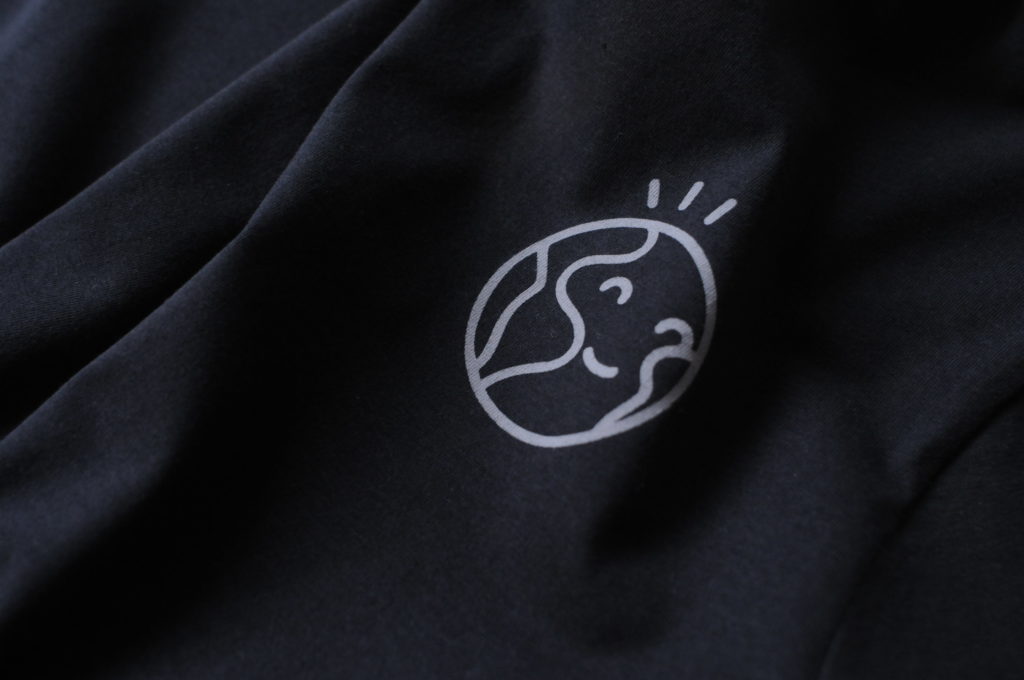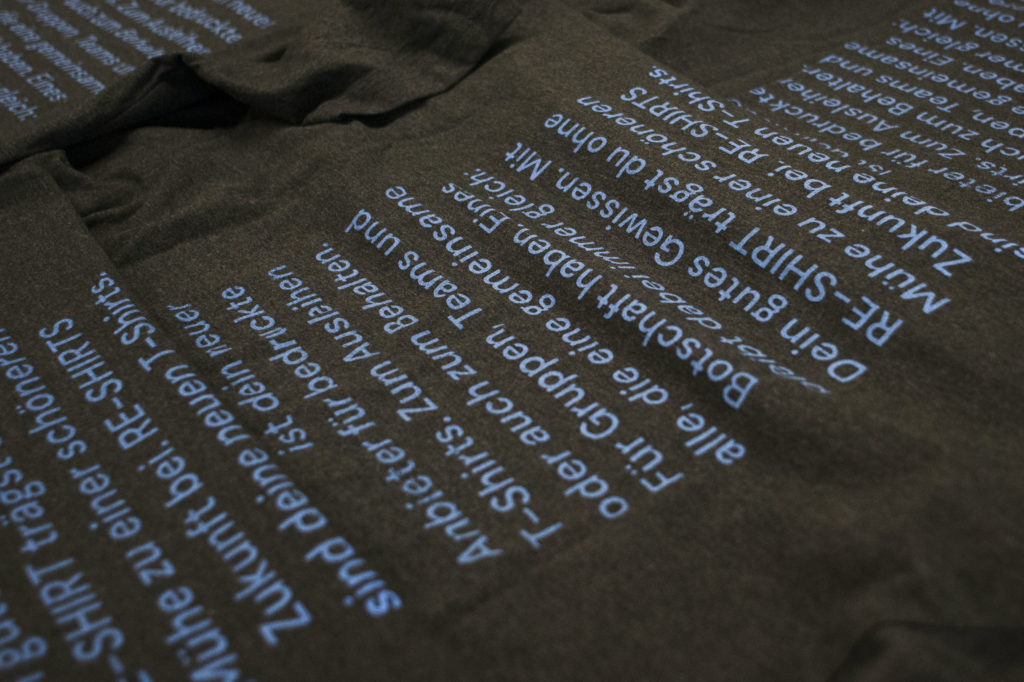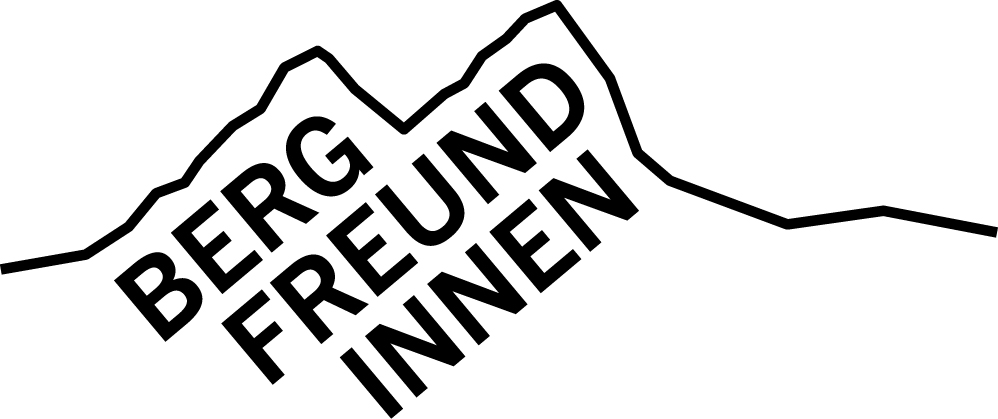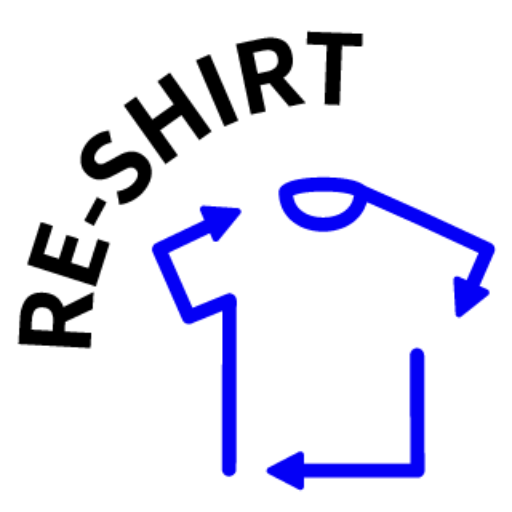We have developed the world’s first temporary textile ink that washes out. With RE-SHIRT you are part of a green revolution without any effort.
We print your temporary messages on textiles.

RE-SHIRTS to keep
You want to have your reversible print for your event on t-shirts, hoodies or maybe longsleeves? Good idea, because your team is happy about a blank textile after washing, which thus gets a long life.
Or would you like to combine our reversible printing technique with a permanent print? Your logo should stay after washing, but the message for the occasion should disappear – no problem for us! We combine permanent & reversible printing individually for you.
→
RE-SHIRTS for rent
We don’t want to burden you or the team you’re outfitting. Our RE-SHIRTS for rent are temporarily printed. That means we pick up the shirts after your use, wash them, and refurbish them for their next use. No guilt, no waste.
- RE-SHIRTS for rent look exactly like regular printed T-shirts. And they behave the same way, too.
- Each RE-SHIRT can be re-printed for different events – even exclusively for your event series!
- You don’t have relics in your closet: RE-SHIRTS won’t become a burden after their performance.
- Without effort, you contribute to the green revolution by using RE-SHIRTS. Of course, this is also a good story to tell.
→

A borrowed RE-SHIRT saves 2500 liters of water compared to each new T-shirt.
Talk to us!
“The textile industry really needs an urgent rethink, there can be no more-ever-new. The re:publica is truly happy to have found partners in RE-SHIRT, with whom we can think and produce our merchandise offers to our visitors and volunteers more sustainably.”
JOHNNY HAEUSLER founder re:publica
“RE-SHIRT continues the idea of the sharing economy: You don’t have to own everything that can be used elsewhere in the meantime. This way, many resources can be saved. A valuable contribution to more resource conservation and climate protection.”
FLORIAN PACHALY
founder RECUP
“With their two product lines, the two founders of RE-SHIRT have found a remarkably effective lever for conserving textile resources. At the same time, they show that a change in thinking towards circular products is also economically viable.”
DR. JÖRG LEFÈVRE
referee DBU












